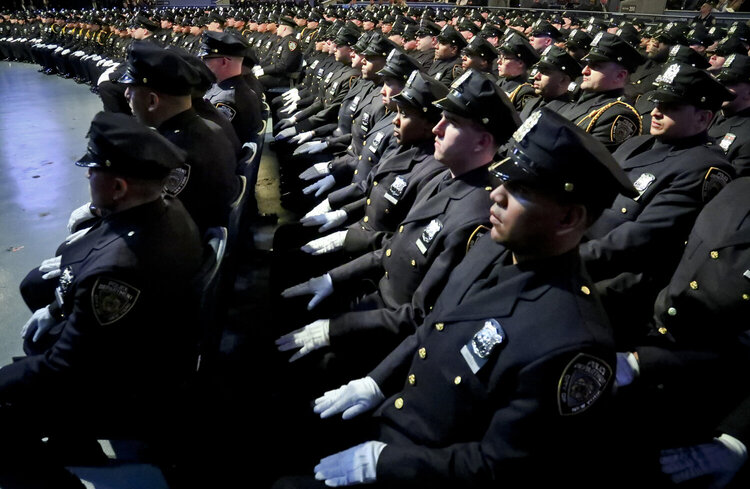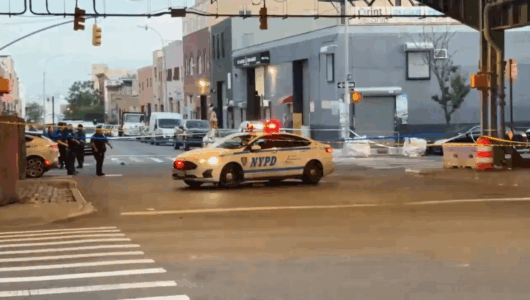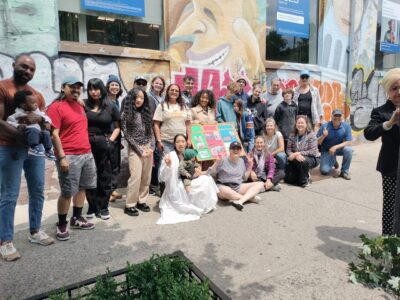BOROUGHWIDE — Facing pressure from civil rights groups, the NYPD announced Thursday that it will change the way officers collect DNA from people accused of a crime or called in for questioning, while establishing stricter guidelines for obtaining genetic samples from children.
The new policies include creating a consent form, amending the NYPD patrol guide and instructing the Office of the Chief Medical Examiner, which maintains the city’s vast DNA database, to remove samples collected without a court order.
“As a department, we have reformed policies and practices to support a system that is fair and effective while also cultivating trust with the community,” said Police Commissioner Dermot Shea. “These changes are common sense and incorporate feedback we have gathered without compromising the ability for officers to successfully identify criminals, build strong cases and bring justice for victims.”
Under the new policy, the NYPD can obtain DNA samples from children who are investigated for felonies, including gun crimes, sex crimes and hate crimes. The Chief of Detectives can also give officers permission to obtain DNA from children charged with other offenses.
The police department said it will audit and review every sample in the database that is two years old or older. The NYPD will review all samples every four years under the new policy.
The rule changes nevertheless give the city wide latitude to retain DNA samples.
The NYPD said it will instruct OCME to remove DNA samples unless the person who provided the DNA was convicted of a felony or misdemeanor, or remains a suspect in a crime or investigation. OCME can retain DNA samples for people who were the “subject of an arrest or prosecution where no judicial conclusion was reached on the person’s innocence,” the NYPD said in a statement.
Critics of the NYPD’s DNA collection policies and the city’s database said the policy changes do not go far enough.
“The NYPD’s weak and cynical proposal does nothing to protect New Yorkers from genetic stop and frisk,” said Terri Rosenblatt, supervising attorney of the DNA Unit at The Legal Aid Society. “Under their plan, surreptitious DNA sampling and DNA dragnets from people who haven’t been convicted of any crime will still run rampant.”
“Their vague suggestion that they will agree to expunge some samples provides little comfort to our clients — including kids as young as 12 — who are among the tens of thousands of people in the OCME index now or may be in the future,” Rosenblatt continued.
The changes come less than a week before the City Council’s Committee on Public Safety examines how the NYPD collects genetic material from people who are suspected of crimes or merely called in for questioning.
The committee, chaired by Queens Councilmember Donovan Richards, oversees the NYPD, which feeds the controversial DNA database after acquiring samples from convicted felons, criminal suspects and people who were never even charged with an offense. The hearing will take place on Feb. 25.
The database included 82,473 samples as of August 2019, according to information obtained by the Legal Aid Society through a Freedom of Information Law request last year. The NYPD now says the database has roughly 32,000 samples.
NYPD officers often collect DNA from people called in for questioning by scraping the material off items that touch their mouths, including used cigarettes and cups of water. The DNA left on those items is fair game for cops to collect. The NYPD says the DNA is vital for solving crimes, including cold cases.
But critics say the practice violates the civil liberties of people who aren’t convicted or even accused of crimes, while perpetuating racial inequities in the criminal justice system.
After the murder of Howard Beach resident Karina Vetrano in August 2016, NYPD officers conducted a DNA dragnet to obtain genetic samples from more than 300 black and African-American men in and around the neighborhood.
Though those DNA samples played no role in cracking the case, the men’s genetic samples remain stored in the OCME’s office — often unbeknownst to the men.
“There’s no transparency,” Richard told the Daily News in May 2019. “We don’t know how often these dragnets occur. But I can guarantee that if we look, a large number are happening in black and brown neighborhoods. I think the public should be outraged.”

 Man arrested after hit-and-run killed two in Sunset Park
Man arrested after hit-and-run killed two in Sunset Park  Sunset Park residents look to form new mural at 54th Street
Sunset Park residents look to form new mural at 54th Street